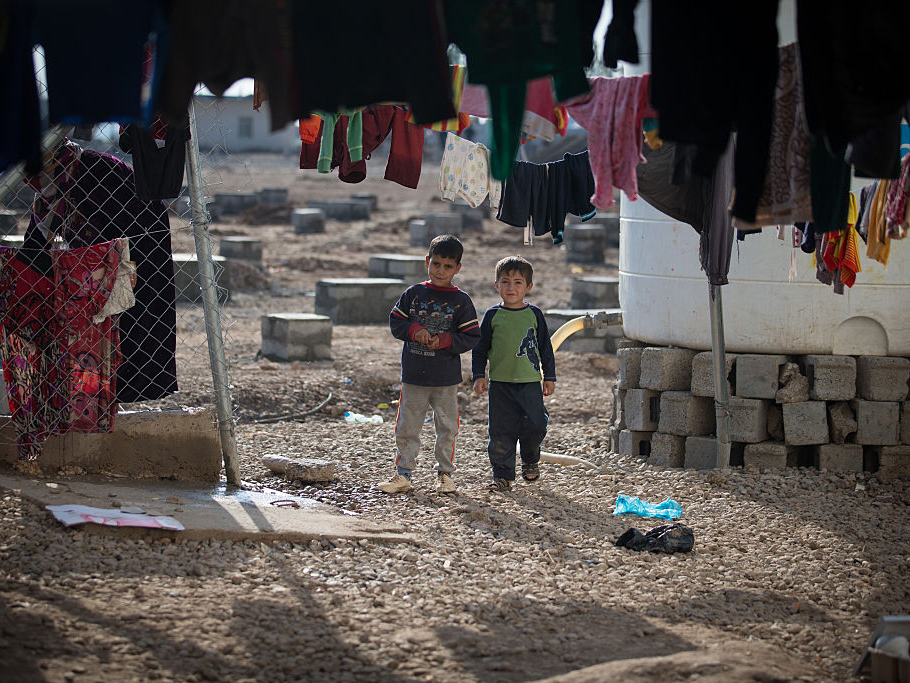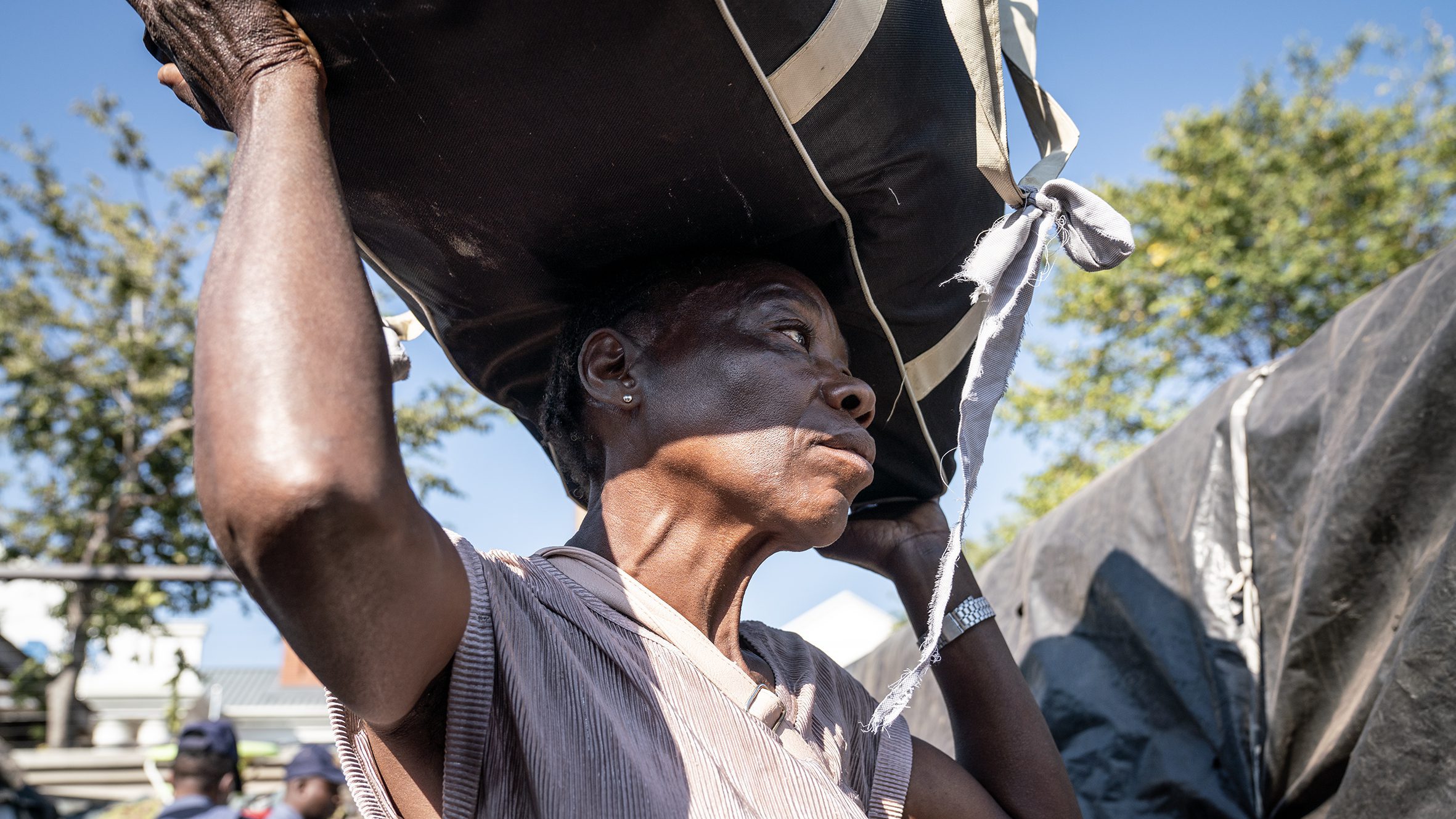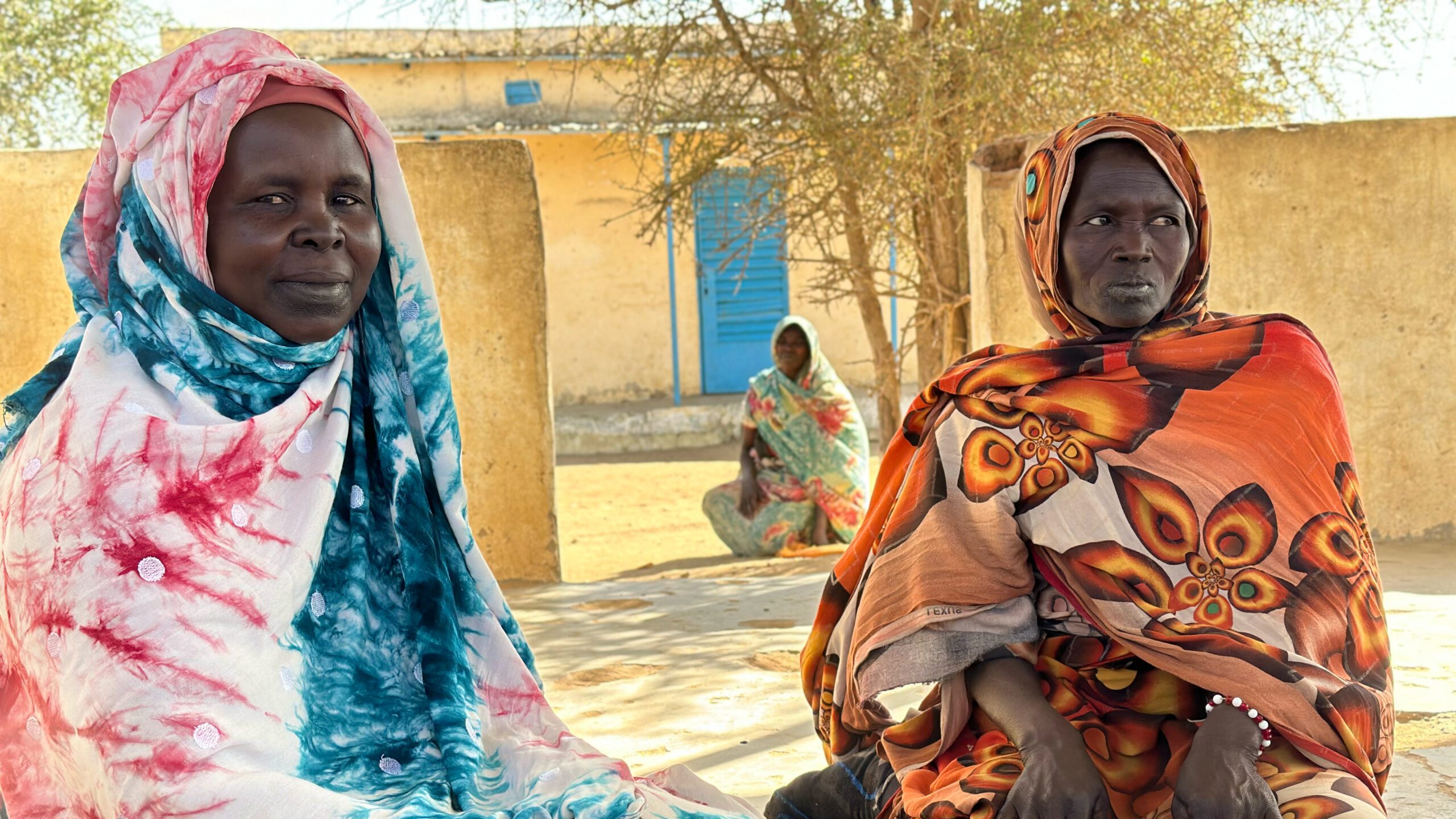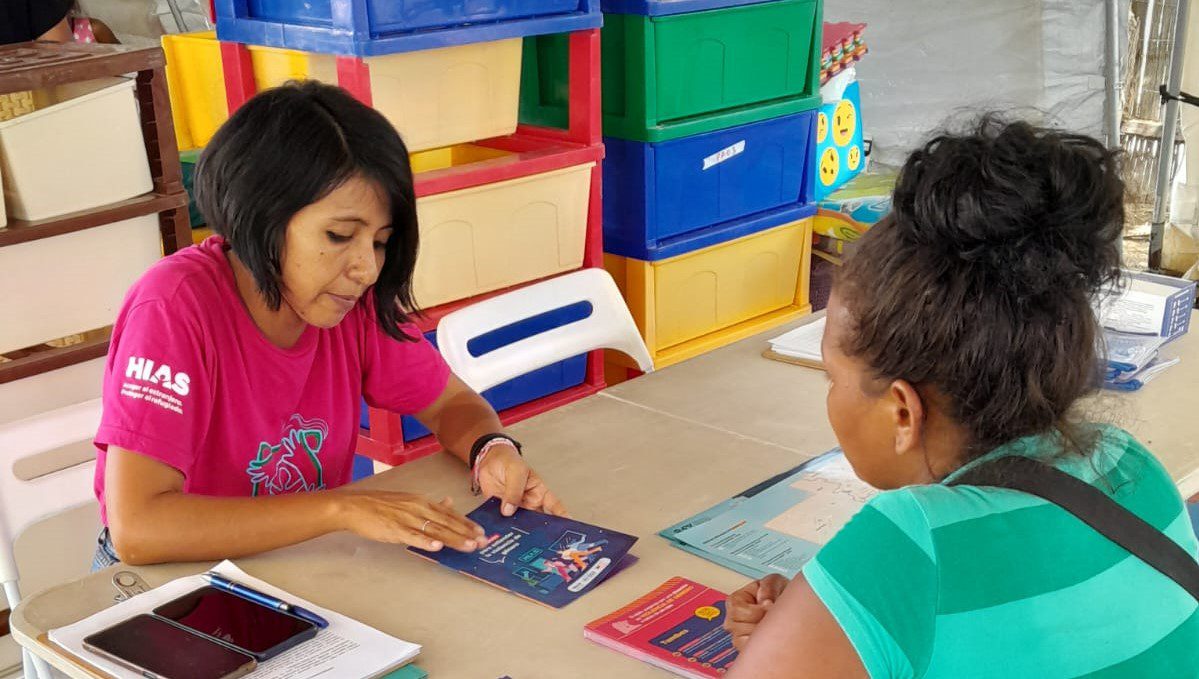Some Heartening News for Refugees from Recent Brookings Polls
By Jacob Magid, Refugee Policy Intern
Jul 11, 2016

Displaced Iraqi children, who were forced to flee their home because of Islamic State's advance earlier this year, stand in front of tents that have been erected at the Baharka refugee camp on December 11, 2014 in Erbil, Iraq.
(Matt Cardy/Getty Images)
Last month, the Brookings Institution released polling results showing that a majority of Americans support opening their doors to refugees escaping conflict in the Middle East. Nonresident Senior Fellow Shibley Telhami introduced the results of this national public opinion poll at a June 13 event at the prominent Washington think tank.
The poll questions focused on American attitudes toward refugees from the Middle East, particularly those from Syria. Respondents were divided by political party identification as well as the presidential candidate they support. Overall, the poll found that 59 percent of Americans support taking in refugees from conflict in Syria and other Middle Eastern countries while 41 percent remain opposed. Among Democrats, support rose to 77 percent.
Following the presentation of the polling data, Telhami was joined by POLITICO Magazine and Boston Globe contributor Indira Lakshmanan for a conversation moderated by Will McCants, director of Brookings’ project on U.S. relations with the Islamic world. The three scholars discussed the upcoming election, the politics of fear, and moral responsibility to protect and welcome refugees.
There was one caveat to the generally encouraging findings—Americans appear deeply divided with regards to the country’s moral responsibility to welcome refugees from the Middle East, even in light of its past involvement in the regions’ conflicts. Just about 50 percent of Americans believe they have a moral obligation to take in refugees, despite over 80 percent admitting that they are either somewhat or significantly responsible for the emergence of the crisis given the U.S. role in the 2003 Iraq war. “Americans care but they rationalize an easy way out,” explained Telhami during the June 13 discussion.
The figures complement the work HIAS is doing as well as in Jewish communities across the country. The 150+ congregations that have joined HIAS’ “Welcome Campaign” surely are represented in the 55 percent of Americans that believe Syrian refugees would be welcomed in their communities. Respondents were definitive regarding the significance of English language training for refugees upon arrival with 64 percent believing that such lessons are “very important.” HIAS—as one of nine agencies that resettles refugees in the U.S.—is also at the forefront of this issue, frequently connecting resettled refugees with English classes that are essential for helping refugees integrate into their new communities.
Additionally, despite the fact that just three Americans have been arrested on terror-linked charges since 9/11, only 14 percent of survey respondents knew this to be the case; with 46 percent of respondents consequently identifying the possibility of terrorism as what concerned them most about accepting refugees. Lakshmanan commented that the fear of attacks in the post-9/11 world has allowed for the spread of “wild misconceptions” about refugees. However, despite an over-sensationalized media and a polarizing presidential election, Americans have maintained a generally positive perception of Muslims, with 62 percent holding favorable attitudes.
In an election season where the refugee crisis has frequently taken center-stage, the new Brookings polling figures provide a heartening reminder that most Americans are intent on helping those fleeing persecution and seeking safety.






